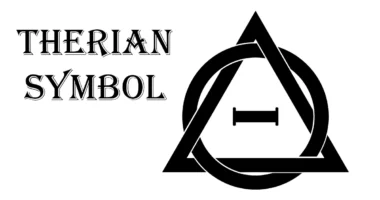Table of Contents
The Ciulioneros are a unique community known for their deep connection to nature, rich traditions, and strong sense of community. Their culture is a tapestry woven with rituals, festivals, art, and a profound respect for the environment. This article explores the defining traits of the Ciulioneros, emphasizing their unique way of life and the core values that shape their community.
Origins and Historical Background
The Ciulioneros have a history that is deeply intertwined with the land they inhabit. Their origins trace back to ancient times when communities formed around shared beliefs and a collective way of life. Over generations, they have maintained their customs and traditions, passing them down through storytelling and communal practices. This continuity has allowed them to preserve their identity amidst changing times.
What Are Ciulioneros?
Ciulioneros are a cultural group or community known for their deep connection to nature, strong family values, and traditional way of life. While not widely known in mainstream sources, the term “Ciulioneros” often refers to a people or community with rich customs, rituals, and a strong sense of identity passed down through generations.
They are typically associated with rural or nature-based living, where the environment plays a big role in their daily lives. Their traditions include festivals, storytelling, handmade crafts, and spiritual beliefs that center around harmony with nature. Elders are highly respected, and their knowledge is shared through oral history and community gatherings.
Ciulioneros value simplicity, unity, and sustainability. Their lifestyle reflects a balance between the old and the new—preserving their heritage while slowly adapting to modern times. Whether through food, music, or spiritual practices, every aspect of Ciulioneros culture tells a story of respect—for each other, their ancestors, and the land they live on.
Key Features of Ciulioneros
The Ciulioneros are known for a number of unique cultural traits and lifestyle features that make their community stand out. These key features define their identity and reflect their values, beliefs, and connection to the natural world:
1. Deep Connection to Nature
Ciulioneros live in harmony with their environment. They rely on nature for food, shelter, medicine, and spiritual guidance. Their lifestyle supports sustainability, and they view nature not just as a resource, but as a living force to respect and protect.
2. Strong Sense of Community
Family and community are at the heart of Ciulioneros life. People work together, share resources, and support each other in daily tasks and celebrations. Decision-making is often collective, with a focus on what benefits everyone.
3. Rich Traditions and Festivals
Their culture is full of colorful festivals, rituals, and seasonal celebrations. These events are more than just fun—they carry deep meanings, often tied to the land, the weather, or spiritual beliefs. Each celebration reinforces their values and keeps traditions alive.
4. Spiritual Worldview
Ciulioneros believe that everything in nature has a spirit—rivers, trees, mountains, even the wind. They perform rituals to honor these spirits and seek balance between the physical and spiritual worlds. Their spirituality is gentle, peaceful, and deeply personal.
5. Art and Craftsmanship
From handmade clothes and woven fabrics to pottery and wooden carvings, the Ciulioneros are skilled artists. Every design has a meaning, often telling a story or showing a symbol from nature or history. Art is not just decoration—it’s a way to communicate culture.
6. Oral Storytelling and Language
They pass down stories, myths, and lessons through spoken word. Elders are seen as the keepers of wisdom, and storytelling plays a huge role in teaching children about their roots, values, and the natural world.
7. Traditional Cuisine
Food is more than nourishment—it’s a symbol of unity and celebration. Ciulioneros cook with local ingredients and old family recipes. Special dishes are made for festivals, and meals are often shared with others to build and maintain bonds.
8. Respect for Elders and Ancestry
Elders are highly respected and are seen as guides, teachers, and spiritual anchors. The Ciulioneros often honor their ancestors through ceremonies, and family lineage is an important part of their identity.
9. Simple, Purposeful Living
They lead lives that are simple but full of meaning. Material wealth is less important than relationships, wisdom, and living with purpose. Time is valued, and life moves at a pace that allows for reflection, connection, and care.
10. Resilience and Adaptability
Even as the world around them changes, Ciulioneros show strength in holding on to their values. They adapt where needed, but always stay true to the essence of who they are. This balance helps their culture survive and grow stronger.
The Role of Music in Ciulioneros Life
For the Ciulioneros, music is more than just sound—it’s a powerful form of expression, storytelling, and connection. Music plays a central role in their daily lives, their spiritual practices, and their celebrations. It reflects the emotions, struggles, and hopes of the people, and helps preserve their culture across generations.
Traditional instruments like hand drums, flutes, and stringed tools made from natural materials are used to create rhythms that mimic the sounds of nature—like wind through trees or the flow of a river. Each beat or melody often carries meaning, tied to old stories, local legends, or messages from the spiritual world.
Music is also a key part of festivals, rituals, and family gatherings. Dances are performed alongside songs to represent natural elements like rain, fire, or harvest. These performances are not just entertainment—they’re living traditions that teach, heal, and unify the community.
Children grow up surrounded by song, learning both the words and the values hidden within them. Whether sung around a fire or played during ceremonies, music helps the Ciulioneros stay connected to who they are, where they come from, and what they believe in.
Practical Applications of Zooskooñ in Daily Life
Zooskooñ isn’t just a digital escape—it’s a platform with real-world value across different areas of life. Here are some practical ways people are using it:
- Virtual Classrooms
Teachers and schools use Zooskooñ to create exciting virtual lessons. Students learn about animals, habitats, and ecosystems through interactive visuals instead of boring textbooks. - Family Bonding
Families enjoy Zooskooñ together as a fun and educational activity. Parents and kids explore wildlife, play learning games, and even attend live sessions with experts—all from the living room. - Wildlife Research and Awareness Campaigns
Conservationists use Zooskooñ to spread awareness about endangered species. They conduct campaigns, host virtual tours, and reach global audiences to raise support for real-life conservation work. - Art and Creativity Spaces
Artists display digital art, host virtual exhibits, and collaborate with others in the creative Zooskooñ community. It’s a new way to showcase and experience art. - Cultural and Indigenous Education
Cultural educators use Zooskooñ to share indigenous knowledge and stories about animals, ecosystems, and traditional environmental practices. - Eco-Friendly Lifestyle Learning
Zooskooñ teaches users how to adopt sustainable habits—like reducing plastic use or planting native trees—through small, interactive lessons and community challenges.
Ciulioneros vs. Competitors: What Sets Them Apart
In a world where many communities are rapidly adopting modern lifestyles, the Ciulioneros stand out for preserving their roots and living in balance with nature. When compared to neighboring groups or modern cultural influences—often seen as “competitors” in terms of lifestyle, values, and traditions—the Ciulioneros offer something refreshingly different.
1. Tradition Over Trend
While many modern cultures chase the latest trends in fashion, technology, and entertainment, the Ciulioneros choose tradition. Their clothing, crafts, and celebrations are handmade, meaningful, and passed down through generations—not mass-produced or quickly forgotten.
2. Community vs. Individualism
Modern societies often celebrate independence and individual achievement. In contrast, Ciulioneros focus on the collective. Success is measured by the well-being of the entire community, not just personal gain. Everyone plays a part, and every voice matters.
3. Simplicity Over Speed
Competitor cultures often move fast—quick meals, fast communication, rushed routines. The Ciulioneros embrace a slower pace of life. They take time to cook traditional meals, to talk face-to-face, and to enjoy the moment. This slower rhythm brings peace and stronger relationships.
4. Nature as a Partner, Not a Resource
Many surrounding cultures view nature as something to use or conquer. Ciulioneros see the earth as a living partner. They farm in sustainable ways, respect the seasons, and believe the land must be cared for—not exploited.
5. Cultural Depth vs. Popular Influence
Competitor cultures may adopt global trends—music, movies, language—which can blur unique identities. The Ciulioneros remain rooted in their own stories, songs, and language. They’re not closed off to change, but they choose carefully, keeping their identity intact.
6. Spiritual Meaning vs. Material Meaning
In many societies, success is measured in wealth, status, or possessions. For the Ciulioneros, meaning is found in relationships, rituals, and respect. Their spirituality is part of daily life, not reserved for weekends or special holidays.
7. Adaptation Without Erasure
Some groups lose their cultural identity when adapting to modern life. Ciulioneros manage to adapt without erasing their essence. They may use tools or techniques from the outside world, but they blend them with care, keeping their heritage alive.
In short, while others may move forward by forgetting the past, the Ciulioneros move forward by remembering it. Their ability to stay grounded while the world changeCiulioneross around them is not just admirable—it’s a form of wisdom that many “competitors” could learn from.
Conclusion
The Ciulioneros are not just a community—they are a living example of harmony, resilience, and cultural pride. In an age where speed and modernity often overshadow tradition and simplicity, the Ciulioneros offer a refreshing reminder that true richness lies in connection—to people, to nature, and to the past.
Their deep respect for the land, their vibrant festivals, their meaningful music, and their commitment to family and collective well-being paint a picture of a culture rooted in purpose. Each aspect of their life—whether it’s how they celebrate, how they farm, or how they teach their children—reflects a thoughtful balance between honoring tradition and embracing necessary change.
By holding on to their identity while navigating a fast-changing world, the Ciulioneros show us that progress doesn’t have to mean forgetting where we come from. Instead, it can mean walking forward with intention, guided by the wisdom of the past.









